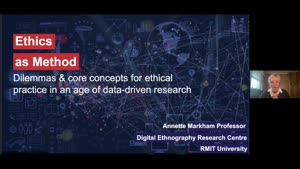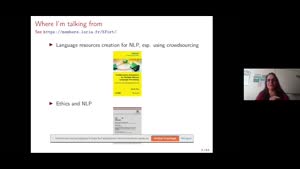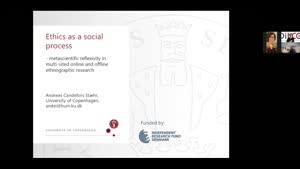Indexicality, virality and the entangled speech chains of TikTok: DiLCo Lecture Series 2023 (27 April) - PhD Rodney H. Jones - Universität Hamburg
- Lecture2Go
- Videokatalog
- F.5 - Geisteswissenschaften
- Sprache, Literatur, Medien (SLM I + II)
- Digital language variation in context (DiLCo)
Videokatalog
Indexicality, virality and the entangled speech chains of TikTok: DiLCo Lecture Series 2023 (27 April)
Rodney H. Jones is Professor of Sociolinguistics at the University of Reading. His research interests include digital literacies, language and embodiment, and the sociolinguistics of surveillance. His most recent books include Understanding Digital Literacies 2nd edition (with Christoph Hafner, Routledge 2021), and Introducing Language and Society (with Christiana Themistocleous, Cambridge 2022).
One of the key affordances of TikTok is the ability it gives to users to reuse the sounds from other people’s videos, spawning what Abidin and Kaye (2021) call ‘audio memes’, in which voices originally from one body are inserted into the bodies of others in the form of ‘lip-syncing’ performances. Like visual memes, audio memes often derive their humour from the incongruency between the two elements combined, in this case the social identity indexed by the voice and the identity of the body performing it. At the same time, such performances inevitably involve ‘metapragmatic stance-taking’ (Spitzmüller, 2015), where the bodily performance functions as a commentary not just on the voice, but also on the person (or type of person) who produced it. In cases where people appropriate voices from people of social groups different from their own, this practice can perpetuate stereotypes and enact symbolic violence against the original speaker or the social group they belong to. As with other kinds of memes, however, the complex, discordant, and sometimes random- seeming indexicalities created through these recombinations can make it difficult to understand how this symbolic violence operates and how to respond to it. Drawing on recent work on the embodied and affective dimensions of sociolinguistic variation (Eckert, 2019; Pratt, 2018), this talk argues that understanding the kinds of meanings generated by audio memes, as well as why they ‘go viral’, requires that we attend not just to indexicality, but also to iconicity, in particular how the recombination of bodily qualia such as voice quality, articulatory setting, facial expression and gesture, come to communicate embodied affects, which, on the one hand become central to the sensual experience of participating in the meme, and on the other, imbue the appropriated voice with a ‘moral flavour’ (Gal, 2013) by creating or reinforcing associations between particular affects and particular embodied identities.
DiLCo Lecture Series 2023 aims to showcase cutting edge international research on digitally language and communication by both senior and younger researchers from across the world. We wish to present research that explores digital language and communication by drawing on key concepts and topics in socio-cultural linguistics, such as community, context, identity, mediated interaction, multimodality, and linguistic change. We particularly welcome presentations of innovative methods that cut across traditional disciplinary boundaries.
---
DiLCo (‘Digital language variation in context’) is a 3-year international research network initiated in 2021 at the University of Hamburg. The network brings together researchers from Europe and USA with expertise in computational, interactional, and ethnographic approaches to digital language and linguistics. It aims to provide a platform for the development of interdisciplinary ideas in digital language and communication research, and for early-career capacity building.

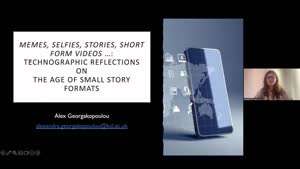
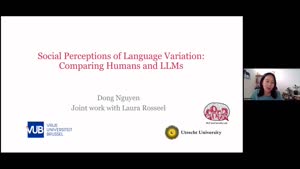
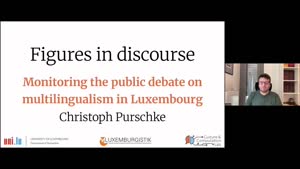
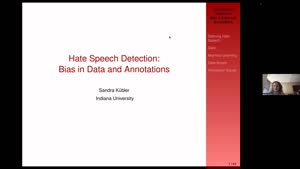
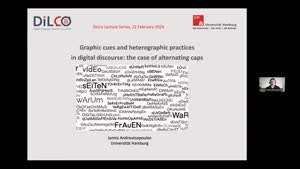
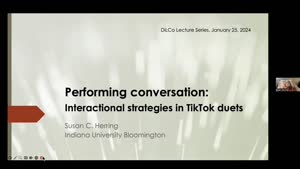
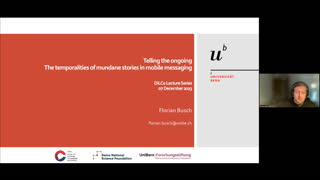
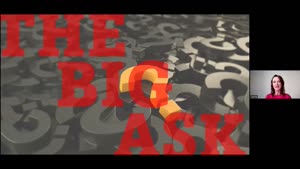
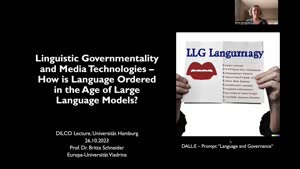
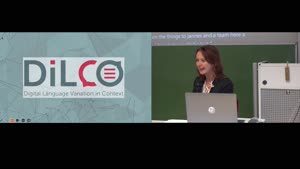
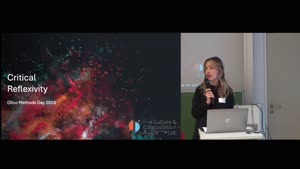
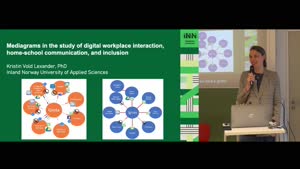
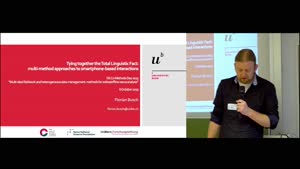
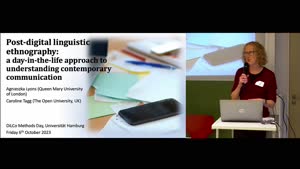
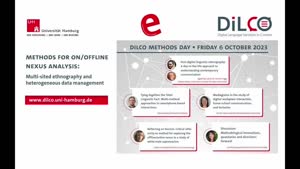
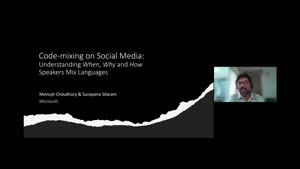
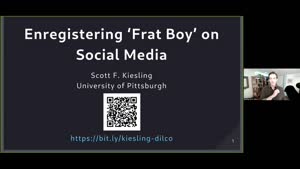
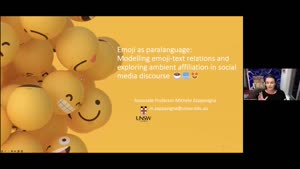
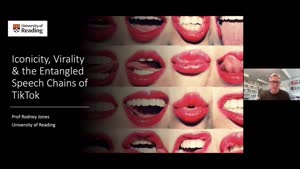
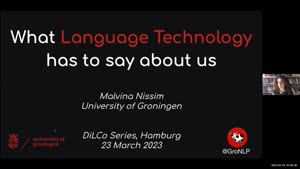
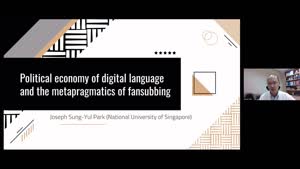
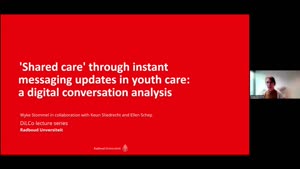
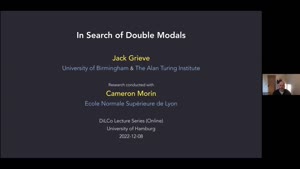
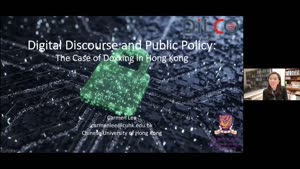
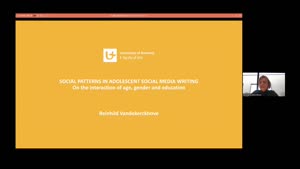
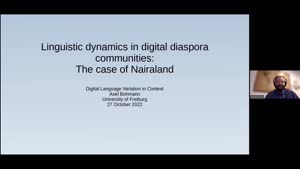
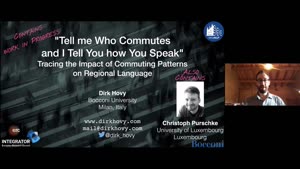
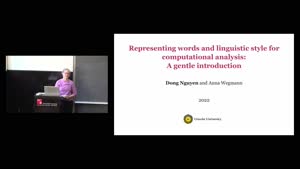
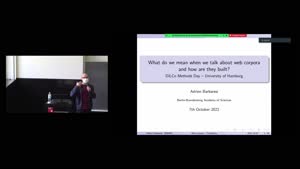
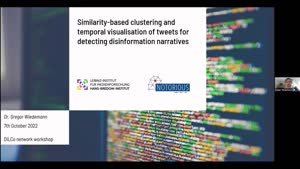
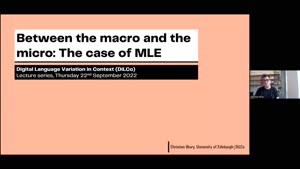
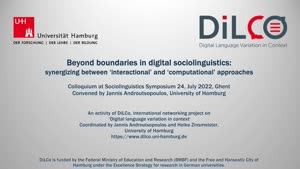
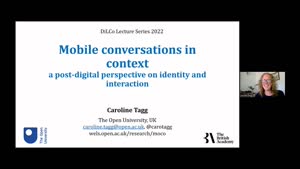
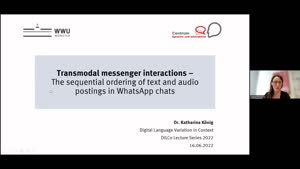
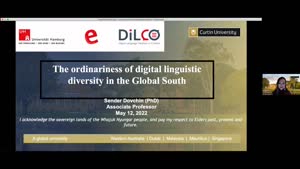
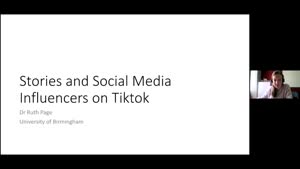
![Miniaturansicht - Graphic Prosody and political discourse on Greek Reddit [Presentation in Greek]](https://lecture2go.uni-hamburg.de/images/00.000_video-61074_2022-03-30_18-30_m.jpg?lastmodified=1663761108652)
